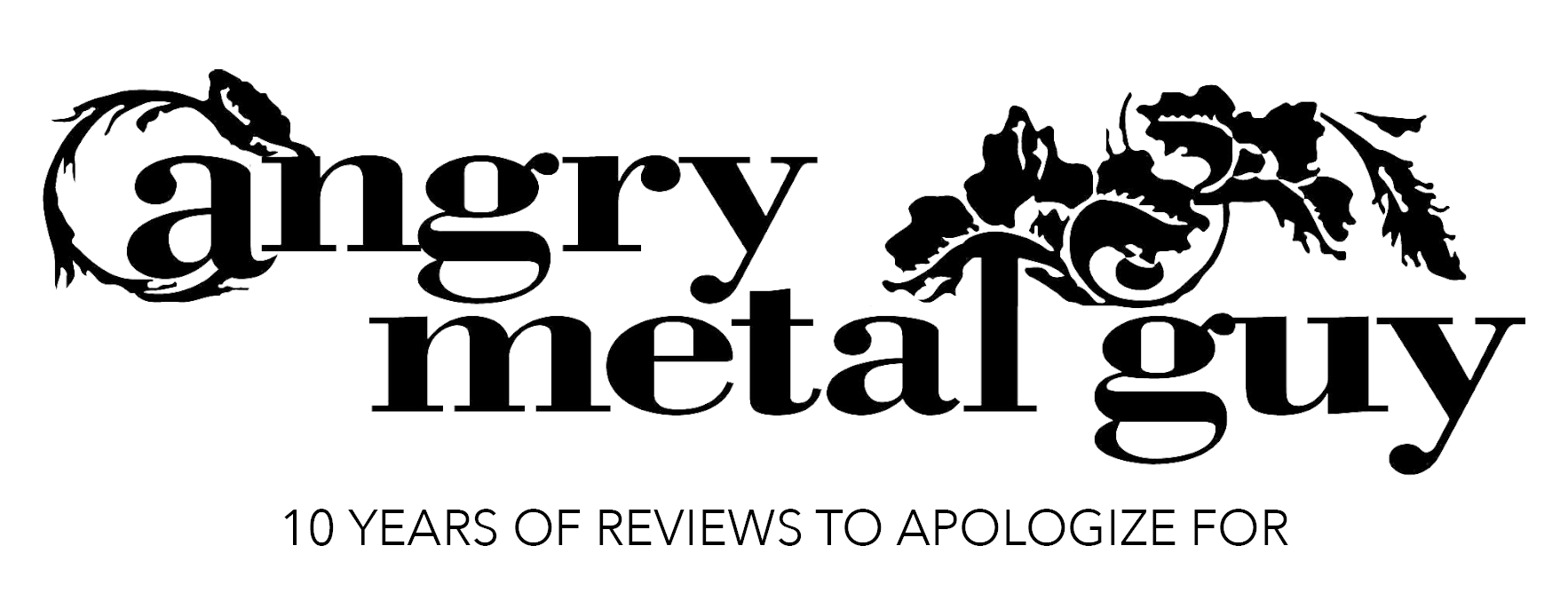 Some albums need a particular reviewer to get the appreciation they deserve. A reviewer who connects with, and is able to extol virtues of, the record, like a preacher patiently explaining some of the finer tenets of an obscure religion to the untrve masses. Roquentin was the man that Richmond duo Among the Rocks and Roots’ sophomore album, Raga, deserved. And needed, frankly. On other occasions, an album lands itself a reviewer who is spectacularly ill-equipped to deal with it. AtRaR’s third album, Pariah, is that record and I am that man. Knowing only that Raga scored a 4.0 and that Roqqy is on a permanent, entirely non-suspicious sabbatical, I stepped up, feeling that Pariah needed reviewing. I still feel that but I also now feel that it should have been reviewed by someone else. I expect AtRaR may feel the same if they read this.
Some albums need a particular reviewer to get the appreciation they deserve. A reviewer who connects with, and is able to extol virtues of, the record, like a preacher patiently explaining some of the finer tenets of an obscure religion to the untrve masses. Roquentin was the man that Richmond duo Among the Rocks and Roots’ sophomore album, Raga, deserved. And needed, frankly. On other occasions, an album lands itself a reviewer who is spectacularly ill-equipped to deal with it. AtRaR’s third album, Pariah, is that record and I am that man. Knowing only that Raga scored a 4.0 and that Roqqy is on a permanent, entirely non-suspicious sabbatical, I stepped up, feeling that Pariah needed reviewing. I still feel that but I also now feel that it should have been reviewed by someone else. I expect AtRaR may feel the same if they read this.
The first thing to understand about Pariah1 is that it comprises only four compositions and yet clocks in at just over an hour and a half in length. Like its predecessors, with which I belatedly acquainted myself, this is an album for which structure is an abstract and distant concept. Drawing on post-hardcore, noise, drone, elements of jazz, and more, AtRaR explore semi-free form compositions, relying as heavily on hypnotic repetition as they do shifts in style and tempo. The concluding part of a trilogy that has explored the battle to conquer addiction, Pariah fairly seethes with an unstable anger. Far from coming to terms with life or reaching inner peace, AtRaR seems to glare at the world, baring its teeth.
Mesmerizing percussion and distorted bass lines form the spine of the record, over which rage the bellowed post-hardcore vox. A grimy, gritty blend of early Swans and Primitive Man, with some of the harsh unpredictability of Duma, Pariah rails against racism, white supremacy, and inequality (“Triumph”), as much as it paints the self-loathing of, and inner strength needed to beat, addiction (“III”). Passages of relative calm, like the contemplative, almost mournful strings introduced around 14 minutes into the title track, serve both to give much-needed breathing space and to enhance the stripped-back noise that bookends them. Devoid of breathers, mercy, or respite, “III” sees AtRaR at their rawest. The dual vocals, operating almost in call-and-response style in places, are propelled forward by d-beat drumming and thudding bass, which reaches a weird kind of groove around the 9-minute mark, feeling unstoppable. Although quieter musically, “Triumph” is by far the most uncomfortable thing on Pariah. Relying as much on unsettling static-laden electronica, and mesmerizing drumming as it does anything else, “Triumph” is built around the increasingly fraught audio from a police stop, which arrives at about the halfway point, with the balance of music and samples each serving to heighten the tension of the other.

Closing track “Love” initially offers up a sense of peace and melody not seen anywhere else on Pariah, with acoustic guitar work that could have come straight off ROSK’s Remnants, to which synths and strings are added, alongside clean female vocals. However, the layers gradually build, as more and more percussion is added, alongside squealing synths, electronica, and deliberately disharmonious vocals, making for a half-hour-plus aural soundscape that is very hard to put into words. Unusually for an album like Pariah, it is Abdul Hakim Bilal’s bass which, for me, is the star of the show. When it’s there, it gives energy, groove, drive, and a semblance of structure to the record, when it’s not there, I want it back. AtRaR has a raw, vitriolic feel to it, which the vocals, a joint effort between Hakim Bilal and co-conspirator Samuel Goff, play to, even in the slower, insistent passages of “Love” and “Pariah.” This sense is deliberately enhanced by the production, which feels claustrophobic and oppressive: each time closer “Love” crashes to its conclusion, I feel like a weight is lifted off.
Roquentin described Raga as a “manifestly real album.” The same can be said of Pariah. Exhausting and often deeply uncomfortable listening, you feel AtRaR. However, unless you are willing to focus and dedicate yourself to this record, there is absolutely no point in listening to Pariah. While I got a lot more out of this record than I expected, I cannot sustain the concentration (nor slip into a receptive catatonic state) long enough to take in everything this record is in a single sitting. Whether this is my fault or the record’s (I can’t help but feel the latter), others can decide. How then to score, or even describe, Among the Rocks and Roots’ Pariah … a deeply unsettling, chaotically emotive, exhaustingly overlong triumph? Maybe?
Rating: 3.0/5.0
DR: 6 | Format Reviewed: 320 kbps mp3
Label: Cacophonous Revival Recordings
Websites: amongtherocksandroots.bandcamp.com | facebook.com/amongtherocksandroots
Releases Worldwide: December 8th, 2023

















